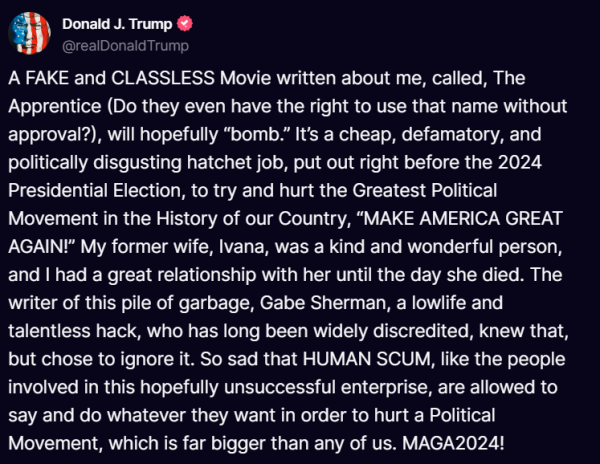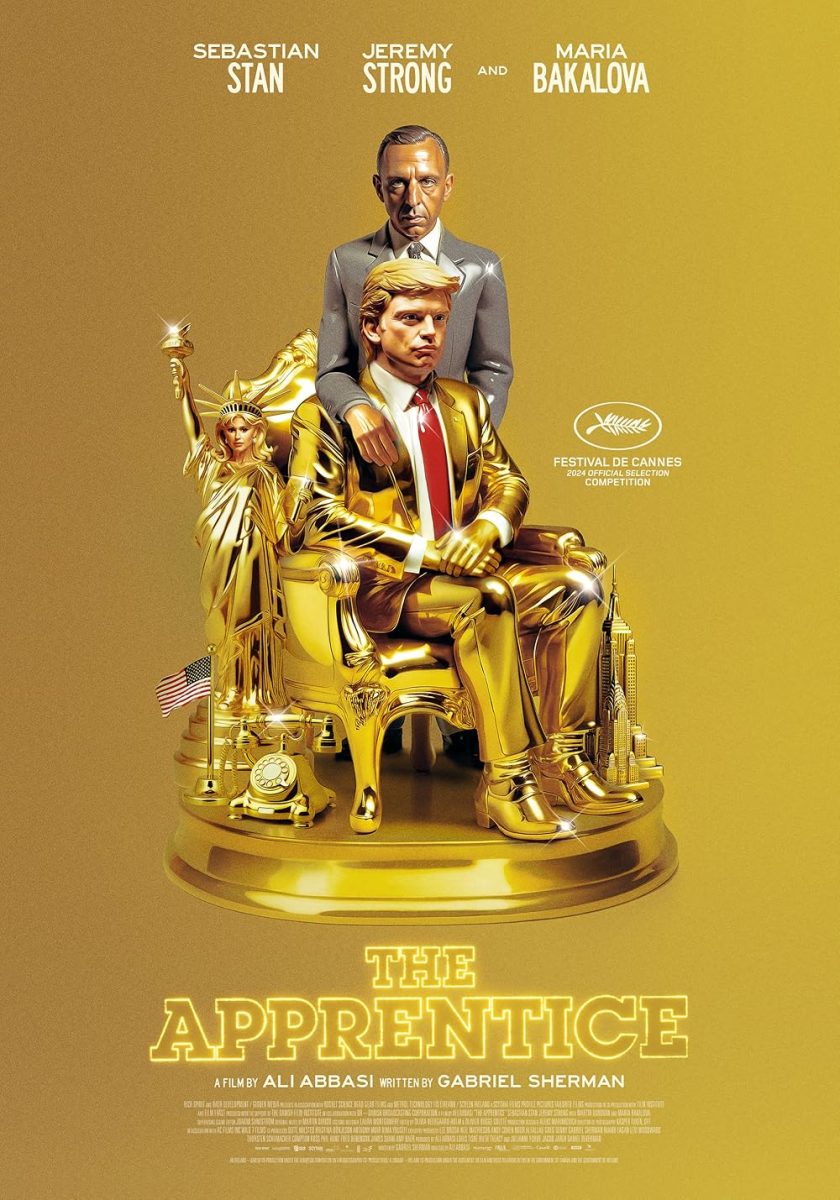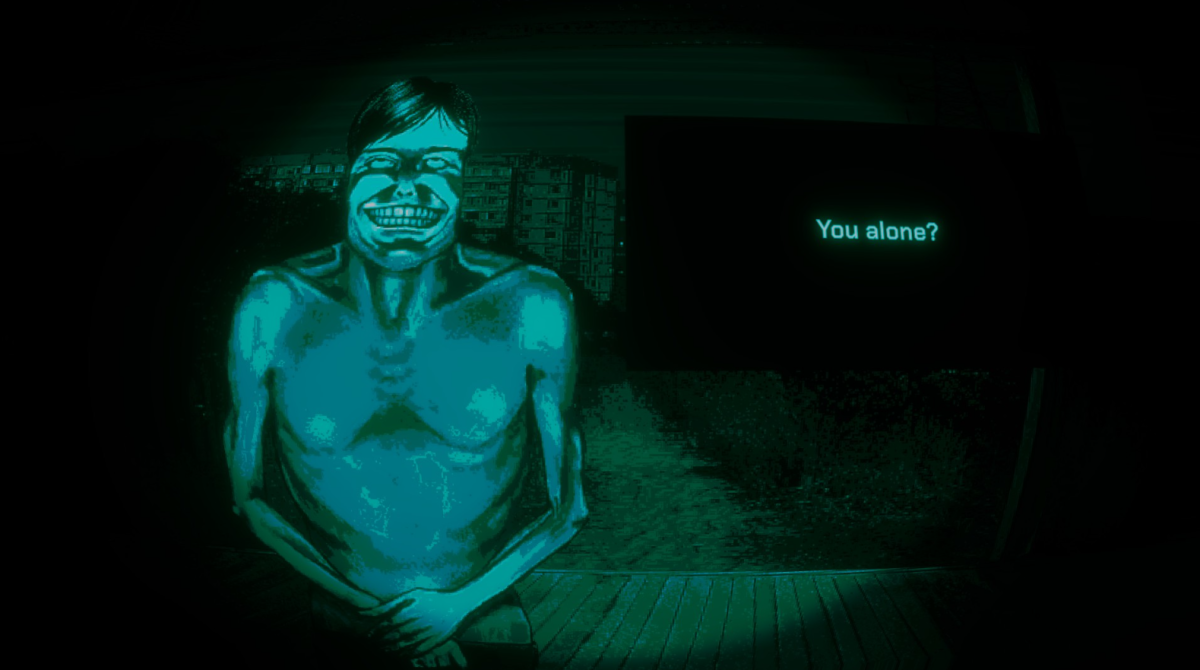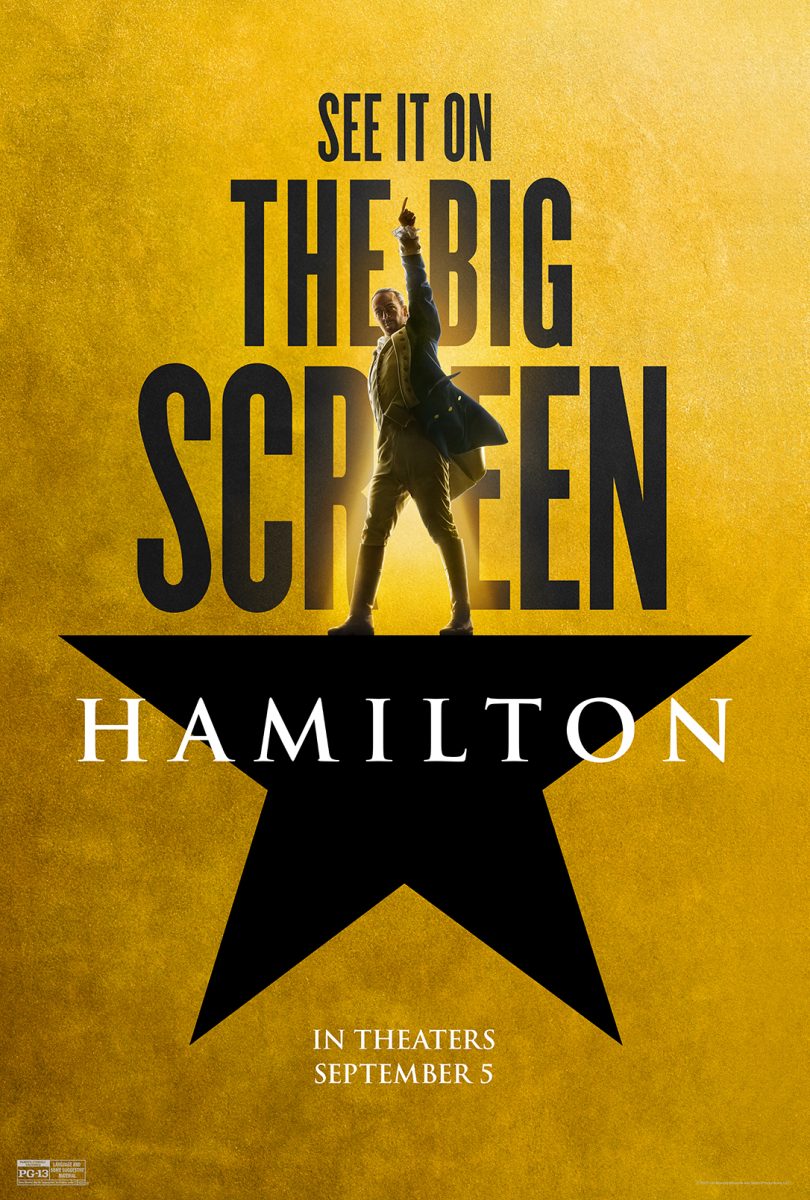Following an eight-minute standing ovation and wide critical acclaim after its premiere at the 2024 Cannes Film Festival earlier this year, “The Apprentice” was determined to establish itself as one of the year’s most daring releases. Soon after, former U.S. President Donald Trump, the subject of the film, tried to lawyer up and shut it down. Despite many attempts by Trump’s lackeys to stop it, the notorious Trump biopic was finally released in theaters across the U.S. on Oct. 11.
“The Apprentice” examines a young Donald Trump navigating 1970s New York looking to develop his business in real estate. After meeting Roy Cohn, a notoriously corrupt American lawyer, Trump begins adopting his mentor’s unethical business practices, which include attacking opponents, denying any wrongdoings, and never admitting defeat. The film soon follows Trump’s manipulative and deceptive journey in making his fortune the dirty way. It also explores Trump’s troubled relationship with his first wife Ivana Trump, and the sexual assault allegations she made against him.
The film is by no means an exact recreation of the events in Donald Trump’s early life. Nor is it trying to be a “propagandistic hit piece” amidst the divisive 2024 presidential election. While scenes and conversations are fictionalized to flow into a concise film narrative, it still seeks to informatively interpret the major historical events from Trump’s life. Additionally, while the film contains political references (including foreshadowing the Trump presidency), it takes no definite stance on either party. If anything, the film seems to take a surprisingly nonpartisan approach in its portrayal of Trump. All the scenes depicted in this film are based on true events from Donald Trump’s life.
Throughout the duration of “The Apprentice,” it experiments with a variety of visual styles to further drive the narrative. It takes influence from documentary-style filmmaking and editing to create a sense of realness in what you’re seeing. I appreciate the distinction between the “film” look and the “digital” look to juxtapose the psyche of Trump, symbolizing his transformation from a young and ambitious businessman to the corrupt manipulative figure we see today. Although shot on an Alexa 35 digital camera, the movie utilizes 16mm film and earlier SD video scanline filters that work in theory with its symbolic meaning. However, this editing technique falls flat in the execution. Neither portrayal is properly convincing. The filters at times appear too strongly, especially when replicating the SD video scanlines. It reaches an extent in which it becomes too distracting, which only hurts the stunning visuals of cinematographer Kasper Tuxen.
Undoubtedly, the strongest aspect of “The Apprentice” comes from its outstanding performances from its leading actors. Jeremy Strong, known for his performance as Kendall Roy on the HBO dramedy, “Succession,” perfectly embodies the pure evil of Trump’s lawyer Roy Cohn. Cited as “The worst human being I’ve ever profiled” by Ken Auletta, a staff writer for the New Yorker, Strong delivers the soullessness of Cohn and his dishonest, remorseless practices. Strong’s eyes are terrifyingly lifeless. It is clear this man has no moral compass whatsoever. It’s almost haunting in a sense seeing how much of Strong’s portrayal of Cohn can be reflected in the actual Trump we see today.
Sebastian Stan delivers arguably the strongest performance of his career in his role as the young Donald Trump. His acting is exceptional. Portraying a figure as widely parodied as Trump and turning it into something audiences can take seriously is no simple task. From comedian Shane Gillis’ hilarious caricature on the “Kill Tony” podcast to a stupid voice you might’ve heard your friend do, Trump imitations are funny, but get annoying incredibly quickly. And yet, Stan manages to make Trump strangely palatable, regardless of what political party audiences are affiliated with.
Stan makes no attempt to do a stupid mimic of Trump’s signature voice but instead looks to accurately replicate his pattern of speech. Additionally, Stan nails Trump’s physical mannerisms, down to the subtle shifts in facial expression. Viewers can be sure to expect a lot of odd, sudden arm gestures and brief moments in which Stan is just fixing his hair. As a result, Stan delivers the best Trump impression I have seen in the media without resorting to a low-brow parody.
It’s honestly a bit tragic to watch the young Trump devolve into an even worse soulless monster than Cohn was. Stan loses any sense of expressive life behind his eyes throughout the progression of the film, and it’s especially haunting remembering that the character we’ve engaged ourselves with is a real person. There’s a heavy feeling of dread implanted inside of me remembering the sick, heartless acts committed by Trump seen in the film came from actual accounts relating to a real human being that just so happens to be one of our next presidential candidates.
The horror is only amplified with the introduction of Maria Bakalova, who plays Ivana Trump in the film. Starting with power over the lustful Trump, she soon becomes a vulnerable victim of his degrading behavior, examining, in particular, her sexual assault allegations against him according to a statement from a court deposition following their divorce. However, the real-life Ivana later renounced her allegations, in spite of delivering her initial statement under oath. When approached with the topic of the film’s controversial sexual assault scene, Bakalova, in an interview with The Guardian, defended its significance stating, “We see somebody completely dismissing the person who built him in a lot of ways, who gave birth to his children. Not only physically, but verbally as well.”

So is the film the “cheap, defamatory, and politically disgusting hatchet job” that Trump claimed it was? No, not necessarily. But the film should not be the main source of evidence utilized against him. Instead, “The Apprentice” merely brings to light the troubled history of the former U.S. president, and encourages audiences to do their own research after seeing the film to properly make their own judgment on him. The film provided me with a nuanced understanding of the controversial figure and enlightened me on alarming topics relating to him I was not previously aware of. Ultimately, as Stan puts it in an interview with the Hollywood Reporter, “Forget the politics and just go in there and use your instinct and ask yourself: Do you trust this man? That’s what the movie is about.”
4/5










Patricia • Oct 22, 2024 at 9:49 am
Great Article! Thank you!